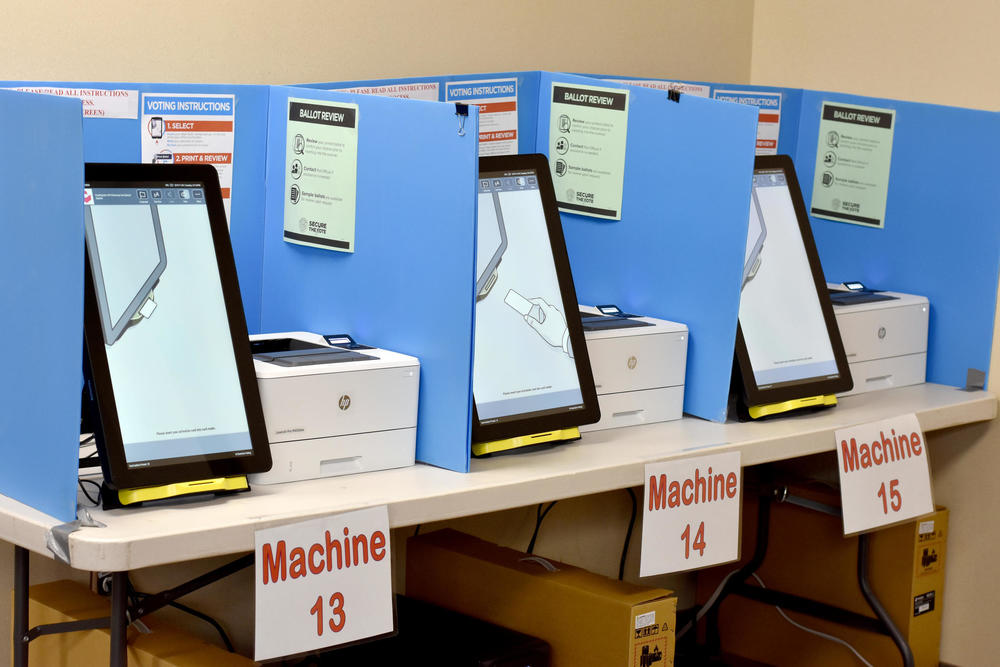
Caption
A federal agency confirms that Georgia’s voting system is vulnerable to hacking but notes there isn’t any evidence of corruption with the 2020 election. In 2019, Georgia this year replaced a voting machine system in use since 2002 that was deemed vulnerable to security breaches.
Credit: Stephen Fowler/GPB file photo


